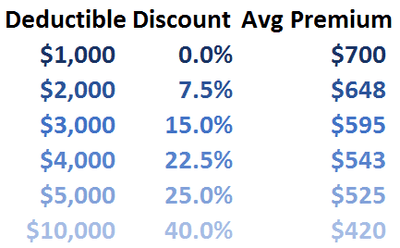Whole life and universal life insurance are both considered permanent policies. That suggests they're developed to last your whole life and will not end after a certain time period as long as required premiums are paid. They both have the prospective to accumulate cash worth in time that you may be able to obtain against tax-free, for any factor. Due to the fact that of this function, premiums might be higher than term insurance coverage. Whole life insurance policies have a fixed premium, suggesting you pay the same amount each and every year for your protection. Much like universal life insurance, entire life has the prospective to accumulate cash value over time, creating a quantity that you may have the ability to obtain against.
Depending upon your policy's possible cash worth, it may be utilized to avoid a superior payment, or be left alone with the possible to build up value in time. Prospective growth in a universal life policy will differ based on the specifics of your individual policy, as well as other factors. When you purchase a policy, the issuing insurer develops a minimum interest crediting rate as laid out in your agreement. However, if the insurer's portfolio makes more than the minimum rate of interest, the company may credit the excess interest to your policy. This is why universal life policies have the potential to make more than a whole life policy some years, while in others they can make less.
Here's how: Since there is a cash value component, you may be able to skip superior payments as long as the money value is enough to cover your needed expenses for that month Some policies might permit you to increase or decrease the death benefit to match your specific scenarios ** In a lot of cases you may borrow against the cash worth that might have collected in the policy The interest that you may have earned in time accumulates tax-deferred Whole life policies offer you a fixed level premium that will not increase, the prospective to collect money worth in time, and a repaired death advantage for the life of the policy.

As an outcome, universal life insurance premiums are generally lower throughout durations of high interest rates than whole life insurance premiums, frequently for the same amount of coverage. Another crucial distinction would be how the interest is paid. While the interest paid on universal life insurance coverage is frequently adjusted monthly, interest on an entire life insurance coverage policy is generally changed yearly. This might imply that throughout periods of increasing rate of interest, universal life insurance coverage policy holders may see their cash values increase at a rapid rate compared to those in entire life insurance policies. Some people may prefer the set death benefit, level premiums, and the potential for growth of an entire life policy.
Although whole and universal life policies have their own unique functions and benefits, they both concentrate on supplying your enjoyed ones with the cash they'll need when you die. By dealing with a qualified life insurance representative or business representative, you'll have the ability to pick the policy that best fulfills your individual needs, spending plan, and monetary goals. You can likewise get afree online term life quote now. * Provided required premium payments are prompt made. ** Boosts might go through additional underwriting. WEB.1468 (How does life insurance work). 05.15.

The smart Trick of What Is An Insurance Deductible That Nobody is Talking About
You do not have to think if you should register in a universal life policy since here you can learn everything about universal life insurance coverage advantages and disadvantages. It's like getting a sneak peek before you purchase so you can choose if it's the right type of life insurance coverage for you. Keep reading to discover the ups and downs of how universal life premium payments, cash worth, and death benefit works. Universal life is an adjustable kind of long-term life insurance coverage that allows you to make modifications to two main parts of the policy: the premium and the death benefit, which in turn affects the policy's money value.
Below are a few of the general benefits and drawbacks of universal life insurance coverage. Pros Cons Developed to use more versatility than entire life Does not have actually the guaranteed level premium that's offered with whole life Money value grows at a variable interest rate, which might yield greater returns Variable rates also imply that the interest on the money worth might be low More opportunity to increase the policy's money worth A policy usually needs to have a positive cash value to stay active Among the most attractive functions of universal life insurance is the ability to choose when and just how much premium you pay, as long as payments fulfill the minimum quantity required to keep the policy active and the IRS life insurance guidelines on the maximum quantity of excess premium payments you can make (How much is dental insurance).
But with this versatility also comes some disadvantages. Let's discuss universal life insurance advantages and disadvantages when it pertains to altering how you pay premiums. Unlike other types of permanent life policies, universal life can adapt to fit your monetary requirements when your capital is up or when your budget plan is tight. You can: Pay higher premiums more frequently than needed Pay less premiums less typically and even avoid payments Pay premiums out-of-pocket or utilize the money worth to pay premiums Paying the minimum premium, less than the target premium, or skipping payments will negatively affect the policy's cash worth.